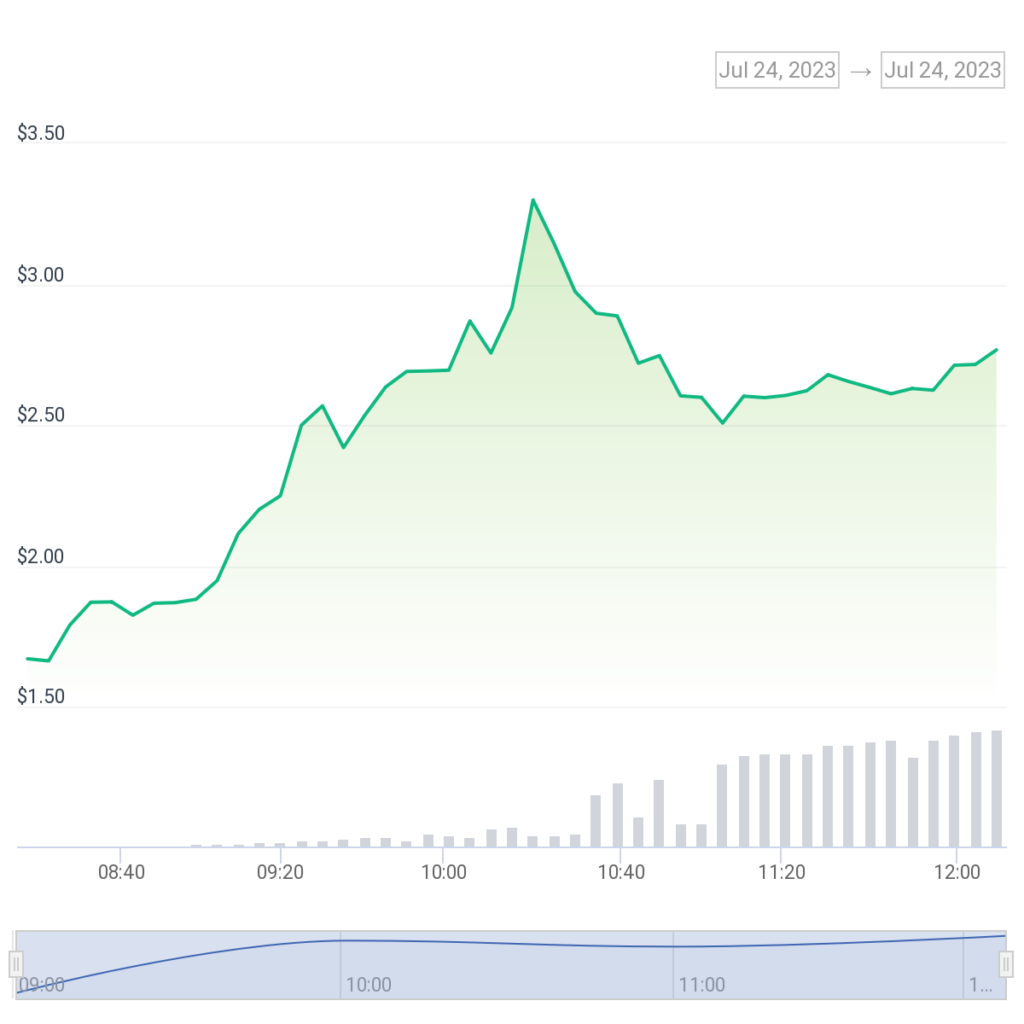- Worldcoin launched on Monday with an airdrop of 43 million tokens to over 2 million sign-ups.
- The digital identity-styled protocol sparked debates regarding centralization and privacy following its Monday debut.
- Ethereum co-founder Vitalik Buterin opined that WLD’s biometric proof of personhood model presents opportunities and concerns alike.
- The token is up over 50% since listing on major crypto exchanges like Binance, Kucoin, Huobi, Bybit, and OKX.
Worldcoin (WLD) – the token for Sam Altman’s digital identity protocol – skyrocketed over 50% in price after its Monday debut across major crypto exchanges like Binance, Kucoin, Huobi, Bybit, and OKX, per Coingecko data.
The token traded at $2.71 on trading venues after surging as high as $3.30 on some platforms. After months of anticipation, WLD launched its mainnet and distributed 43 million tokens to over 2 million users worldwide on July 24.

The project co-founded by OpenAI CEO Sam Altman sparked debates across the crypto ecosystem with proponents raising concerns over centralization and privacy.
Worldcoin styles itself as a “privacy-preserving digital identity” protocol built on the Ethereum L2 solution Optimism that allows users to claim a WorldID through Orb biometric verification and a digital currency (WLD), where local regulations permit.
The age of AI has necessitated proof of personhood solutions built on decentralized privacy-first technology that is globally inclusive, Worldcoin co-founder Alex Blania said, adding that the need for proof of personhood is no longer a topic of serious debate.
Ethereum Founder Buterin Chimes In On Worldcoin Conversation
Indeed, WLDs launch raised eyebrows mainly regarding the project’s biometric verification and possible data leaks that could emerge. The project utilizes a device called Orb – a device that scans a participant’s Iris and validates their identity on the company’s database. Notably, the product is unavailable to U.S. users.
Tools for Humanity’s chief communications officer Rebecca Hahn said the German-made Orbs will debut in 35 cities over the coming months. Currently, there are 200 Orbs although that number is expected to reach 1,500 by year’s end, head of product and design Tiago Sada noted.
Amid concerns that privacy leaks and Worldcoin’s centralization could put users at risk, Ethereum co-founder Vitalik Buterin opined that the technology is needed and will likely take time to effectively build at scale.
The concept of proof-of-personhood in principle seems very valuable, and while the various implementations have their risks, not having any proof-of-personhood at all has its risks too: a world with no proof-of-personhood seems more likely to be a world dominated by centralized identity solutions, money, small closed communities, or some combination of all three.

